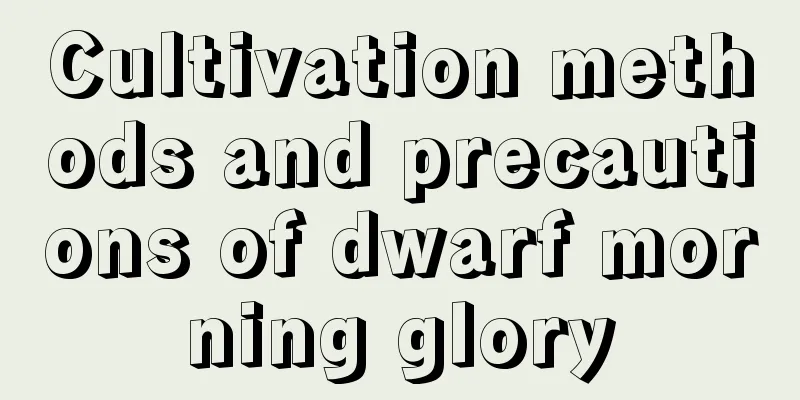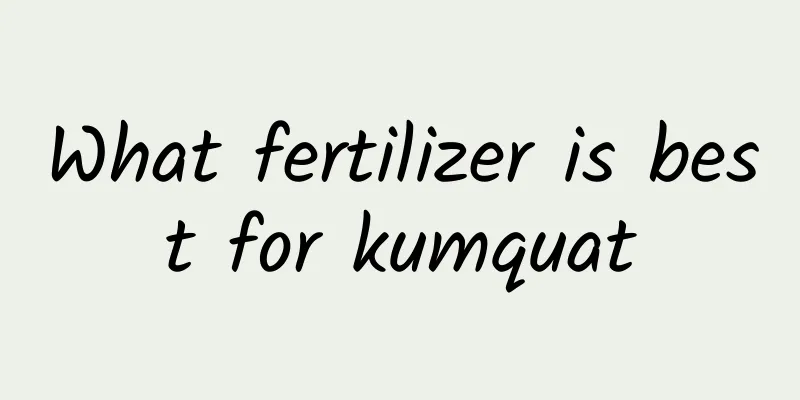Cultivation methods and precautions of dwarf morning glory

|
Dwarf petunias are highly adaptable but are sensitive to standing water. Therefore, when caring for potted plants at home, the humidity of the soil needs to be adjusted artificially. This means replenishing soil moisture while also ensuring that excess water is removed promptly. Let’s learn about the cultivation methods and precautions of dwarf morning glory. 1. Pot soil selection Petunia is suitable for planting in larger pots with a diameter of about 20-30 cm to ensure good air permeability, and avoid using pots with poor air permeability. The soil should be nutrient-rich sandy loam, and the bottom can be padded with plastic foam or gravel to enhance drainage. 2. Lighting requirements Petunias need plenty of sunlight to promote growth and nutrient synthesis. In spring, autumn and winter, make sure the plant has access to sufficient sunlight and place it on a sunny balcony or outdoors. In summer, you need to pay attention to shading to prevent strong sunlight from damaging the leaves and flowers. 3. Temperature management The ideal growing temperature for petunias is 15-25 degrees Celsius. During cold winters, the plants should be moved indoors to help them overwinter safely. 4. Fertilization strategy Petunia has a higher demand for fertilizer , so base fertilizer needs to be added when planting. During the growing period, fertilizer should be applied once every half a month to support its growth. 5. Notes The seedling stage of petunia is longer and the true leaves grow slowly. During the germination period, the temperature should be kept at around 20℃, the soil should be kept moist and loose, and sufficient sunlight should be ensured. Petunia seedlings have weak root systems and limited ability to absorb water. The soil should be kept moist and avoid waiting until the soil is completely dry before watering; at the same time, sufficient light should be ensured, but avoid direct sunlight. If petunias are iron deficient, the leaves may turn yellow. Iron can be supplemented by watering with ferrous sulfate solution. In addition, since peat soil substrate is prone to lack of iron, thin fertilizer should be applied regularly to supplement trace elements. The above are the cultivation methods and precautions for dwarf morning glory. In the past, many friends did not take morning glory seriously, but now they can appreciate its beauty.
|
>>: What fertilizer to use for roses? What to do if you use too much fertilizer?
Recommend
How to care for potted yellow acacia cassia
How to care for potted yellow acacia cassia For t...
When does zephyranthes bloom?
When does zephyranthes bloom? "Allium is a f...
The ten most auspicious flowers in your home
1. Good fortune The lucky pineapple is a flower o...
The Feng Shui Effect of Clivia
1. Improve career fortune Its blooming period is ...
How to grow a single tree
Growth habit Suitable temperature: The loblolly t...
When does gardenia bloom and how to grow it
1. Flowering period Its flowering period is usual...
How to make your own flower soil for home gardening (teaching you how to make your own flower soil at home)
Leaf mold (picture) Method 1: Make your own leaf ...
How to grow red ruby plant
Factors Affecting Color Soil selection If you don...
The effects and usage of Cistanche deserticola
1. Function 1. It has the effect of nourishing th...
Cultivation methods and precautions of Clivia miniata
The habit of this plant First, considering that i...
How long does it take from sowing to planting tomatoes (how big should the tomato seedlings be before they can be planted)
The period from when tomato seeds are sown to whe...
How to take cuttings of evening primrose
Preparation Generally, the cuttings used for even...
How to cultivate acacia
1. Soil Abrus precatorius grows best in fertile, ...
How to propagate passion fruit and what to pay attention to
Passion fruit reproduction method There are two m...
How deep should the branches of Chlorophytum be inserted, and how many days will it take for the cuttings to take root?
1. How deep should the branches be inserted? When...









